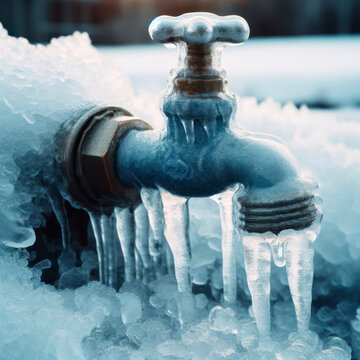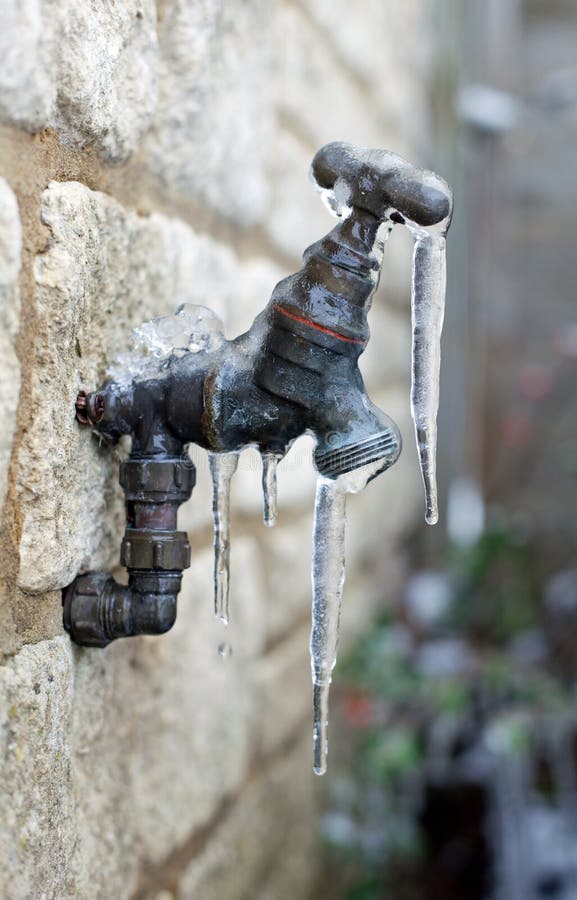Important Advice for Preventing Frozen Pipes in Cold Weather Conditions
Important Advice for Preventing Frozen Pipes in Cold Weather Conditions
Blog Article
In this article underneath you can get lots of worthwhile information and facts regarding How To Avoid Freezing Pipes.

Winter can ruin your plumbing, specifically by freezing pipelines. Here's how to stop it from taking place and what to do if it does.
Introduction
As temperatures drop, the danger of icy pipes boosts, possibly resulting in expensive repair work and water damage. Recognizing how to prevent frozen pipelines is essential for homeowners in chilly environments.
Prevention Tips
Shielding susceptible pipelines
Cover pipelines in insulation sleeves or use heat tape to protect them from freezing temperatures. Focus on pipelines in unheated or exterior locations of the home.
Heating strategies
Keep interior areas adequately heated, particularly areas with pipes. Open closet doors to enable cozy air to flow around pipelines under sinks.
Exactly how to identify frozen pipes
Try to find reduced water circulation from taps, uncommon smells or sounds from pipes, and visible frost on revealed pipelines.
Long-Term Solutions
Structural changes
Consider rerouting pipes far from exterior walls or unheated locations. Add additional insulation to attic rooms, basements, and crawl spaces.
Upgrading insulation
Invest in top quality insulation for pipelines, attic rooms, and walls. Correct insulation helps maintain regular temperatures and reduces the threat of frozen pipes.
Securing Outside Pipes
Yard tubes and exterior taps
Detach and drain yard hose pipes before winter. Mount frost-proof spigots or cover outdoor taps with shielded caps.
Comprehending Frozen Pipelines
What causes pipes to ice up?
Pipes ice up when exposed to temperatures listed below 32 ° F (0 ° C) for prolonged periods. As water inside the pipes ices up, it increases, putting pressure on the pipe wall surfaces and possibly creating them to break.
Dangers and damages
Frozen pipelines can result in water supply disturbances, property damages, and costly repairs. Ruptured pipes can flooding homes and create comprehensive architectural damage.
Signs of Frozen Pipes
Determining frozen pipes early can avoid them from rupturing.
What to Do If Your Pipelines Freeze
Immediate actions to take
If you presume icy pipelines, maintain taps open up to ease pressure as the ice thaws. Use a hairdryer or towels taken in warm water to thaw pipes slowly.
Verdict
Protecting against icy pipelines calls for positive actions and fast actions. By comprehending the causes, indicators, and safety nets, home owners can protect their plumbing during cold weather.
Helpful Tips to Prevent Frozen Pipes this Winter
UNDERSTANDING THE BASICS: WHY PIPES FREEZE AND WHY IT’S A PROBLEM
Water freezing inside pipes is common during the winter months, but understanding why pipes freeze, and the potential problems it can cause is crucial in preventing such incidents. This section will delve into the basics of why pipes freeze and the associated problems that may arise.
THE SCIENCE BEHIND FROZEN PIPES
When water reaches freezing temperatures, it undergoes a physical transformation and solidifies into ice. This expansion of water as it freezes is the primary reason pipes can burst. As the water inside the pipe freezes, it expands, creating immense pressure on the walls. If the pressure becomes too great, the pipe can crack or rupture, leading to leaks and water damage.
FACTORS THAT CONTRIBUTE TO PIPE FREEZING
Low Temperatures: Extremely cold weather, especially below freezing, increases the risk of pipes freezing. Uninsulated or Poorly Insulated Pipes: Pipes located in unheated areas, such as basements, crawl spaces, or attics, are more prone to freezing. Insufficient insulation or lack of insulation altogether exacerbates the problem. Exterior Wall Exposure: Pipes running along exterior walls are susceptible to freezing as they encounter colder temperatures outside. Lack of Heating or Temperature Regulation: Inadequate heating or inconsistent temperature control in your home can contribute to frozen pipes. PROBLEMS CAUSED BY FROZEN PIPES
- Pipe Bursting: As mentioned earlier, the expansion of water as it freezes can cause pipes to burst, resulting in significant water damage.
- Water Damage: When pipes burst, it can lead to flooding and water damage to your property, including walls, ceilings, flooring, and personal belongings.
- Structural Damage: Prolonged exposure to water from burst pipes can compromise the structural integrity of your home, leading to costly repairs.
- Mold and Mildew Growth: Excess moisture from water damage can create a favorable environment for mold and mildew growth, posing health risks to occupants.
- Disrupted Water Supply: Frozen pipes can also result in a complete or partial loss of water supply until the issue is resolved.
WHY CERTAIN PIPES ARE MORE PRONE TO FREEZING
- Location: Pipes located in unheated or poorly insulated areas, such as basements, crawl spaces, attics, or exterior walls, are at higher risk of freezing.
- Exterior Pipes: Outdoor pipes, such as those used for irrigation or exposed plumbing, are particularly vulnerable to freezing as they are directly exposed to the elements.
- Supply Lines: Pipes that carry water from the main water supply into your home, including the main water line, are critical to protect as freezing in these lines can affect your entire plumbing system.
- Underground Pipes: Pipes buried underground, such as those connected to sprinkler systems or outdoor faucets, can be susceptible to freezing if not properly insulated.
https://busybusy.com/blog/helpful-tips-to-prevent-frozen-pipes-this-winter/

Hopefully you enjoyed our article on Winter Plumbing Precautions: Preventing Frozen Pipes. Thanks for taking time to read our piece of content. Those who enjoyed our blog entry plz consider to pass it around. Kudos for being here. Return soon.
Book A Service Call Report this page